Up until a week ago, it seemed as if John Chayka’s place in the Arizona Coyotes organization as the club’s general manager was relatively secure. During his four years on the job, the 31-year-old had completely revamped Arizona’s roster, adding players like Nick Schmaltz, Phil Kessel, Carl Soderberg, Taylor Hall, Alex Goligoski, Niklas Hjalmarsson, Darcy Kuemper, Antti Raanta, and others via trade or free agency.
After suffering through an injury-plagued season, Chayka’s Coyotes were primed to enter their qualifying-round series against the Nashville Predators with a solid chance to compete and advance, especially with Kuemper, a Vezina Trophy contender before going down with an injury in December, back in the fold. Things were seemingly on the up and up in Arizona, particularly so for Chayka, who recently signed a contract extension with the team.
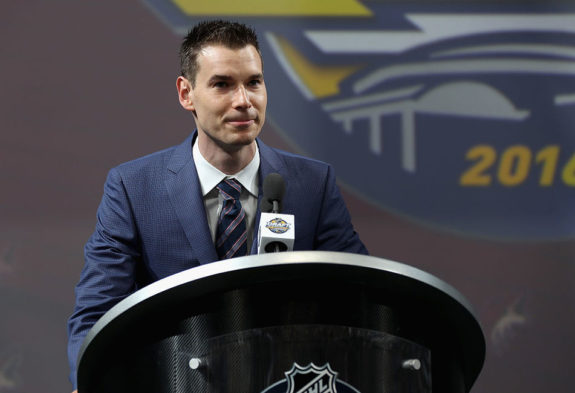
However, on July 20, multiple sources indicated that the Coyotes had re-engaged in contract discussions with Hall, a pending unrestricted free agent, and that Chayka was not involved in the process. With the news of the GM being excluded from contract negotiations with a star player, eyebrows were immediately raised, and, sure enough, fire was indeed present where there was smoke. On the morning of July 26, The Athletic‘s Pierre LeBrun reported that Chayka had terminated his contract with the Coyotes earlier in the week:
A statement from the Coyotes later in the afternoon confirmed these details, while also calling out Chayka for “quitting” on “a strong and competitive team, a dedicated staff, and the Arizona Coyotes fans.”
That’s quite the statement, and it’s clear that this was not a “mutual parting of ways” that we sometimes see in these situations.
Looking Back on Chayka’s Tenure
Sunday’s news closes the book on Chayka’s tenure in Arizona after four seasons. After becoming general manager at the age of 26 on May 5, 2016, Chayka got to work on rebuilding a franchise that had struggled for years due to previous general manager Don Maloney’s poor personnel decisions and ineffective player development systems. Chayka immediately had success as GM, using his two first-round selections in the 2016 draft to add franchise cornerstones Clayton Keller and Jakob Chychrun to the fold.
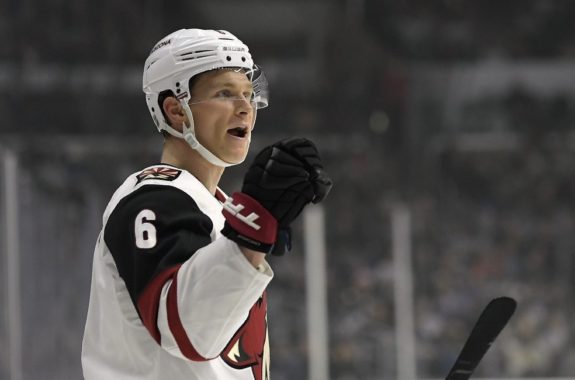
Chayka also had success when it came to signing free agents and acquiring players via trade. He brought in Kuemper, a potential franchise netminder, in exchange for Scott Wedgewood, a goalie who hasn’t played in the NHL since 2018, and Tobias Rieder, who, according to Edmonton Oilers’ CEO Bob Nicholson, was single-handedly responsible for the team’s struggles last season. All kidding aside, Kuemper was had for essentially nothing.
Chayka also managed to acquire Hall at the trade deadline without having to give up anything from his NHL roster. Similarly, Kessel was brought in last summer in exchange for a prospect and a struggling former 30-goal scorer in Alex Galchenyuk, who is now on his fourth team in three years. Carl Soderberg, a reliable veteran who finished with 35 points this season, was acquired for a third-round pick and an AHL defenseman in Kevin Connauton.
However, it wasn’t all sunshine and rainbows for Chayka in Arizona. Barring a surprise breakout player, it looks like the 2017 draft may not produce an NHLer for the Coyotes organization. First-round pick Pierre-Olivier Joseph is struggling in the Pittsburgh Penguins organization after being dealt in the Kessel trade, and only one player, Tyler Steenbergen, finished the 2019-20 season on Arizona’s AHL roster. In 2018, Chayka passed on Calder Trophy finalist defenseman Quinn Hughes to draft center Barrett Hayton, who struggled in limited action as a rookie this season.
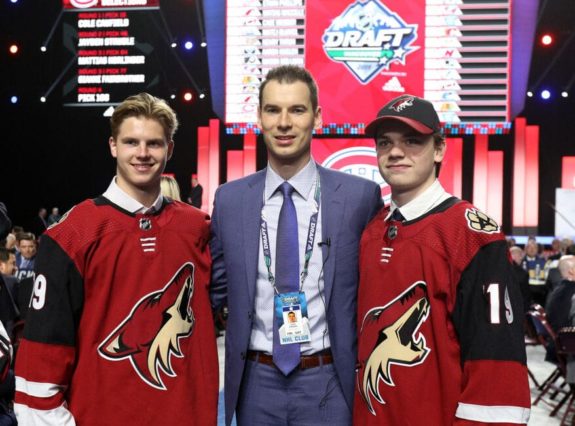
The Coyotes also failed to earn a top-three finish in the Pacific Division or a Western Conference wild-card spot in any of Chayka’s four seasons. In most other cities, that’s grounds for termination. Jason Botterill was recently fired after three unsuccessful seasons in Buffalo, as was his predecessor, Tim Murray. Ray Shero was fired by the New Jersey Devils in January after making the playoffs once in four seasons. Chuck Fletcher and the Minnesota Wild parted ways in 2018 after three consecutive first-round playoff losses, and Paul Fenton, his successor, was axed after just one season on the job.
With all that said, Chayka generally was held in high regard among Arizona’s fanbase. His work had not yet resulted in a top-eight finish in the Western Conference, but it looked as if things were moving in the right direction under his watch.
How Did We Get Here?
Judging from the information that’s slowly trickled out over the course of the last few days, it’s clear that the Coyotes are not happy with how this situation unfolded. We previously discussed the team’s strong statement in which they used the word “quit” repeatedly, while Craig Morgan of AZ Coyotes Insider has reported that a source told him Chayka “is a liar and a quitter” (from “NHL source: ‘John Chayka is a liar and a quitter,’” Craig Morgan, AZ Coyotes Insider, 7/26/2020).
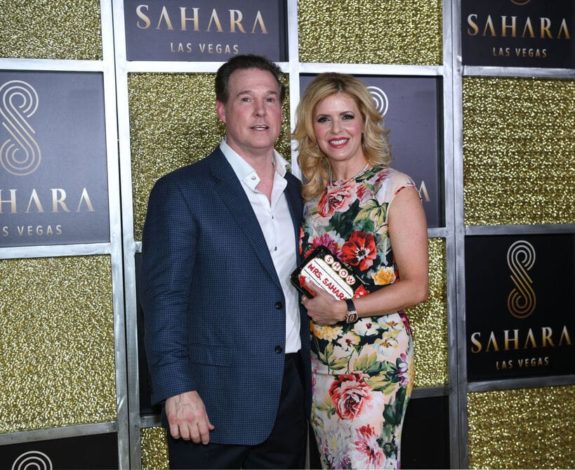
Per Morgan, the process that led to Chayka’s departure from the team was set in motion weeks ago, when an NHL owner requested permission to interview Chayka for another opportunity. Coyotes owner Alex Meruelo denied this request, as Chayka had just signed a contract extension in November, but the Coyotes’ GM still “wanted out.” It is unknown as to what this opportunity could be, but Chayka reportedly is “not permitted to serve as president of hockey operations or GM of another team for the life of his contract” due to language present in the contract.
Morgan also reported that it was Chayka’s idea to not be present at the Coyotes’ now-infamous meeting with Hall, because Chayka “felt conflicted about doing work” for an organization he no longer wished to be employed by. The relationship between team and executive soured rapidly, and, after the Hall story broke last week, the situation could not be kept under wraps and became very public very quickly. More details will surely emerge over the coming hours and days, but, for now, a lot of questions for both parties remain unanswered.
Where Do We Go Now?
The Coyotes have moved on quickly, naming assistant general manager Steve Sullivan as the team’s interim GM. The 46-year-old enjoyed a very successful career as a player, retiring after the 2012-13 season with 747 points (290 goals, 457 assists) in 1,011 NHL games played. Sullivan skated in 33 games with the Coyotes in his final season before being dealt at the trade deadline, and he returned to the organization in 2014 as a player development coach.
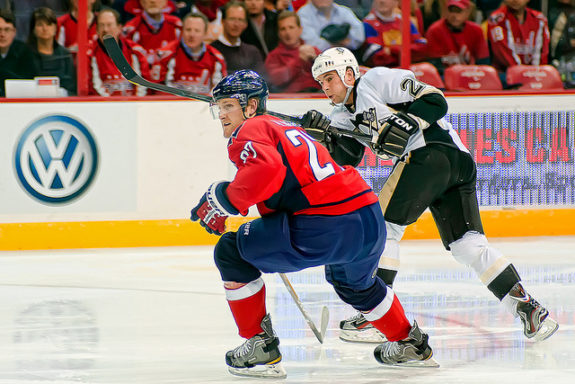
He’s been with the team ever since and now finds himself as the interim GM, although Sportsnet‘s Elliotte Friedman stated that the Coyotes will give Sullivan a “long look” and, presumably, a good chance to earn the position outright.
In comparison to other general managers around the league, Sullivan certainly has the necessary qualifications for the job – he’s been a part of the NHL in some capacity for more than 25 years, the last six of which were spent in player development/executive roles in Arizona. It would be no surprise to see him earn the job – since the Coyotes reportedly fought hard to keep Chayka from leaving, it’s likely that they’ll want to keep some level of continuity in the front office with him now gone.
At any rate, Sunday’s news did not really bring any clarity to the situation. All we know is that Chayka is no longer the Coyotes general manager because of another opportunity, and neither side is really happy about how things turned out. It will be interesting to hear more about what led to the rapid deterioration of the relationship between team and executive as this story progresses.